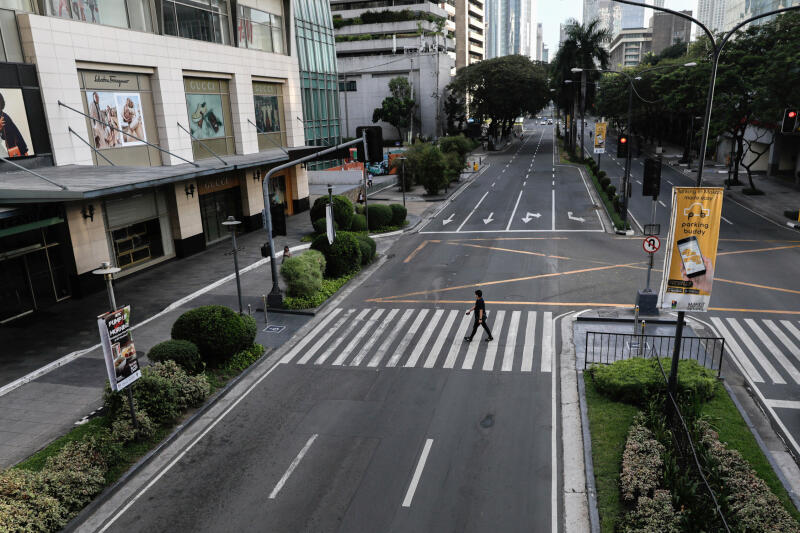Coronavirus: Philippine govt mulls letting offshore gaming operators resume operations
Sign up now: Get insights on Asia's fast-moving developments

Philippine offshore gaming operators had been temporarily closed down amid the lockdown in Luzon.
PHOTO: REUTERS
MANILA - The Philippines is looking at reopening Chinese-operated online gaming firms, as it scrambles to raise funds to support programmes to help the very poor who are hardest hit by draconian measures meant to check the coronavirus pandemic.
"The evaluation is ongoing," Finance Secretary Carlos Dominguez told reporters on Monday (April 20).
A lawmaker on Sunday (April 19) proposed allowing "Pogos" - shorthand for Chinese-run "Philippine offshore gaming operators" - to reopen amid an outbreak.
Taxes levied on these companies could be used to fund government amelioration programmes for millions displaced by a sweeping lockdown put in place since March 15 to slow the virus' spread.
"It will not harm us to have additional sources of revenue that we can use for our hungry countrymen. Lives are at stake and we need to act fast," said Representative Eric Go Yap.
The government earned US$140 million (S$200 million) in licensing fees from Pogos last year, its third-largest source of revenue, behind taxes and Customs duties.
It also collected 6.42 billion pesos (S$180 million) worth of unpaid taxes from these firms.
Revenue officials had hoped to collect 2 billion pesos a month in taxes this year.
But then, the coronavirus pandemic happened.
Both Pogos and casinos were shut, as President Rodrigo Duterte closed off the borders of the northern third of the Philippines spanning half the country's population of over 100 million on March 15.
Before the outbreak, offshore gaming firms were being investigated for their purported ties to prostitution, human trafficking, money laundering and espionage.
Lawmakers were investigating sex dens catering exclusively to Chinese nationals working in Pogos
That probe unearthed a scam that involved immigration officials at the main airport in Manila that abetted the entry of undocumented Chinese nationals, including women lured into prostitution and their handlers.
Senator Richard Gordon had said Pogos could also have been used to launder US$447 million in dirty money from September 2019 to February this year (2020), although he did not provide hard evidence and cited only confidential report he received.
The Anti-Money Laundering Council would only say it found just 14 billion pesos out of 54 billion pesos worth of transactions by Pogos "suspicious", including 138 million pesos that it suggested could be linked to drug trafficking.
At least 200,000 Chinese from the mainland are believed to be working for Pogos. Not all are documented.
Crime syndicates peddling vice have sprouted up to target this huge and abrupt influx of Chinese nationals.
But the government is now again planning to lean on Pogos to bridge its funding gap for its pandemic response.
Mr Duterte has said the government may run out of money, as the 270 billion pesos approved by Congress are "not enough".
The lockdown has led to millions of job losses and forecasts of zero growth by year's end.
He said with tax collections, set originally for the first week of April, moved back till after lockdown restrictions are eased, the government has no source of income.
"What is so exasperating is that we are trying our best. (But) there's no source of income now, except maybe our fixed assets: land, buildings," he said.
But one lawmaker is advising caution, saying allowing Pogos to reopen remains risky.
"(Pogos have) a huge potential of spreading the disease because there are several workers working in an enclosed area and are residing in high-rise condominiums," said Senator Joel Villanueva.
"Most of them also don't pay taxes. So what's the rationale for allowing them to operate?" he added.


